For those serving in the military, time is of the essence. Small things, like an effectively timed nap or an efficient, minutes-saving body temperature technique can mean the difference between life or death when you’re out in the field.
And while many civilians will, fortunately, never find themselves in such extreme circumstances, there is so much we can learn from the military and its ruthless efficiency. Because whether it’s taking a power nap or falling asleep in exactly two minutes, not only are the military’s tactics the most productive way to do things, they’re also usually the most safe.
For example, take the all-nighter, which involves a person intentionally skipping a night of sleep and continuing to go about the next as they usually would. A practice that, in clinical terms, is usually classified as “sleep deprivation.” A staple of frazzled college students and working professionals on a deadline, when done incorrectly (or too often), the all-nighter can lead to some extensive and potentially serious consequences, according to the Sleep Foundation and Sleep Medicine Physician, Dr. Abhinav Singh. “Acute sleep deprivation leads to impaired judgement, worse than being drunk,” writes Dr. Abhinav Singh. In addition, the more sleep a person skips, the more they become susceptible to a host of health issues, including ferocious mood swings, higher levels of fatigue, and a weakened immune system.

That’s too much for soldiers to risk. However, for a mix of reasons (stressful sleeping conditions, post-traumatic stress disorder, jet lag, etc.) military personnel rarely get enough sleep. According to the Sleep Foundation, while 37% of people in the United States get fewer than 7 hours of sleep per night (the recommended amount), that number shoots to a whopping 76% for service members. Which means, a majority of military personnel are sleep deprived.
But alas, duty calls. In an interview with ABC News, Stew Smith said that he and his team had to stay awake for a “punishing five days” as a part of their Navy SEAL training. “When you’re losing sleep, after a while you turn to this fight-or-flight response,” he said. “You just go into survival mode.”
So, how did he do it? To get a unique perspective on the ins and outs of pulling a successful all-nighter, The Art of Manliness asked a group of former Soldiers, Marines, and Special Forces veterans to share the methods that got them through combat and a host of night-ops, writing “For these vets, staying awake through the night was a matter of life and death, but their tips apply equally well to the civilian who needs to plow through a work or school project.” Here are their tips.

(1) Bank a few extra hours of sleep in advance
If you’re planning an all-nighter, try to score a few extra hours of sleep leading up to it. “When you know your all-nighter is coming, see if you can bank a few extra hours in advance,” says a former Navy SEAL. “That makes the well deeper when you have to dip into sleep reserves.”
You can also fill up your “sleep tank” with something called a “prophylactic nap,” which can help reduce the drop in alertness experienced during a night shift or all-nighter. According to the Centers for Disease Control and Prevention , this type of nap is long, usually lasting for a few hours. “During a long nap, the brain can progress into the deeper stages of sleep, and, as a result, can reduce the buildup of pressure for sleep,” it says on the CDC website.
(2) Drink caffeine, of course. But be strategic
No all-nighter is complete without a few cups of coffee or wildly sugary energy drinks, but there’s a method to the madness. The Art of Manliness recommends staying away from caffeine the day before and after your all-nighter, to ensure you don’t build up too much of a tolerance.
To make your caffeine even more effective, try adding fat to your cup of coffee, using ingredients like grass-fed butter, ghee, MCT oil, coconut oil, coconut cream, or full-fat cream. Not only are these organic and natural saturated fats an excellent source of protein, by adding fats to your coffee, you are slowing down the digestion and absorption of caffeine into your system, and thus, prolonging its effects.
Oh, and avoid huge amounts of caffeine in one dose, which can lead to an energy crash. Take smaller doses more frequently, and aim for 100-150 milligrams every 2-3 hours.

(3) Keep active, both physically and mentally
“If I was on some type of outdoor guard duty—gate guard, fire guard, or motor pool guard—I would walk around,” says a former Army Infantry member. “If I couldn’t walk around I did push-ups, sit-ups, squats, or some other quick exercise. The ability to keep the blood flowing was one of the easiest ways to stay awake for long periods of time.”
Constant motion is key to a successful all-nighter, as physical activity stimulates the nervous system, leading to a spike in alertness and focus. Or, if you have to remain stationary, integrate short movement breaks, like walking or stretching, to avoid fatigue build-up.
Keep your mind sharp, too. On a r/army thread on Reddit, user @outofmyelement1445 says “you just need to keep moving and keep your mind on some type of task. I always did some type of simple math or would try to divide in my head without using my fingers. Little things like that would keep me awake.”
(4) Eat tactically
Much like caffeine, there’s a right way to fuel your body before an all-nighter and a wrong way. To stay awake as long as possible, make sure to stock up on protein and fiber, found best in nuts and seeds. So, grab a fistful of trail mix packs and energy bars, and plan to snack consistently throughout the night—and avoid large, heavy meals so you don’t crash.
Teen Vogue also recommends opting out of almonds, which contain tryptophan (found in turkey) and magnesium, which naturally reduce muscle function and steady the heart rate, thus, causing some people to feel sleepy.
Overall, while most sleep experts agree that all-nighters should be avoided, sometimes, you can’t help it. Make sure you’re taking care of yourself and your body—and do what the military does.





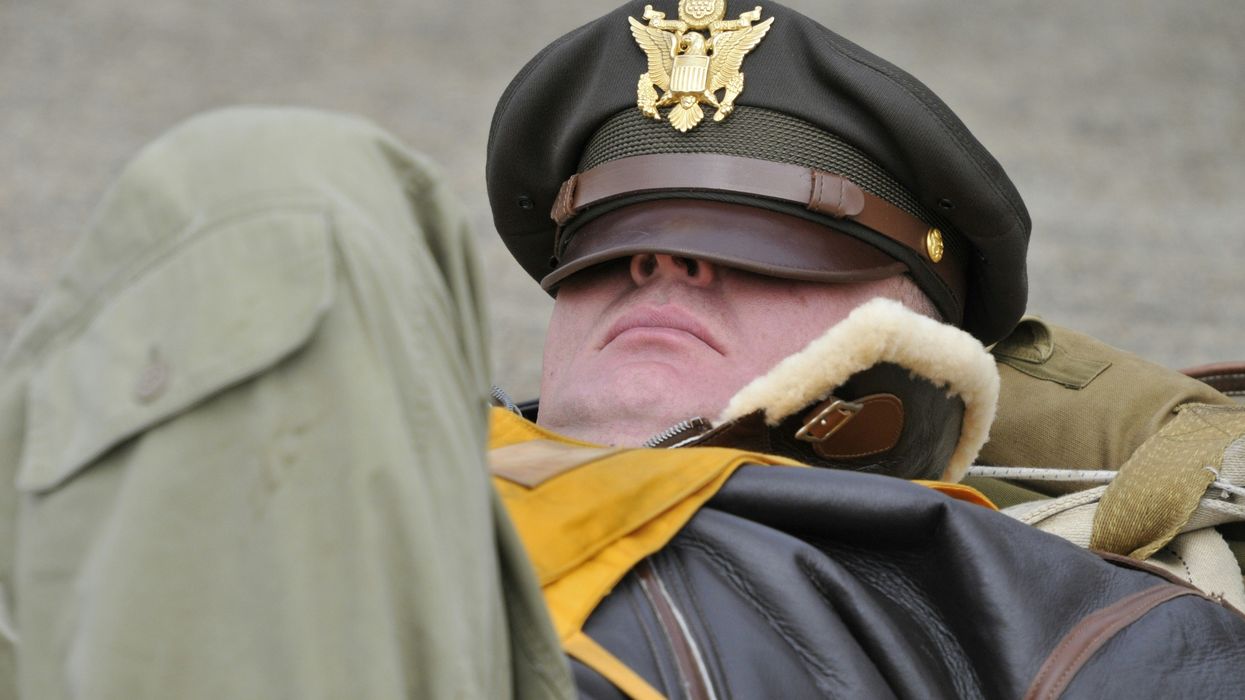






 A daunting mess was no match for one woman. Jonna Roslund, used with permission.
A daunting mess was no match for one woman. Jonna Roslund, used with permission. 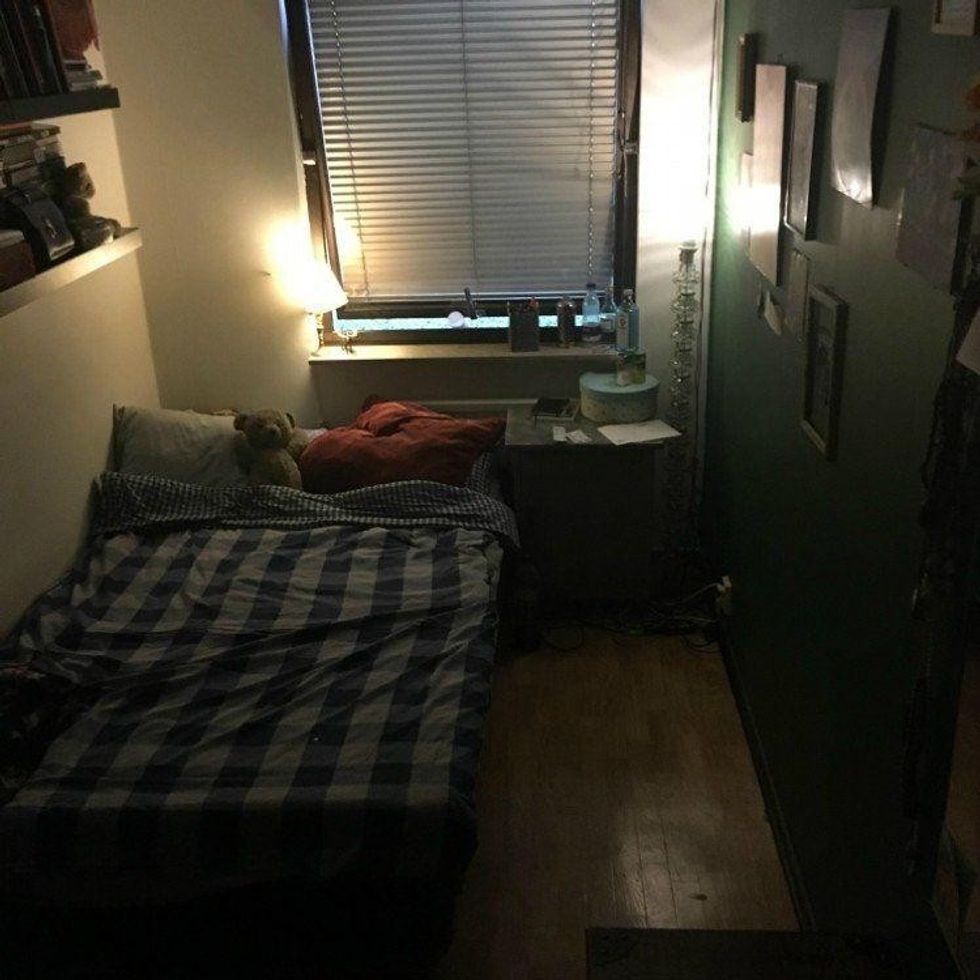 What looks like just a tidy room was actually a giant victoryJonna Roslund, used with permission.
What looks like just a tidy room was actually a giant victoryJonna Roslund, used with permission.  Jonna Roslund, used with permission.
Jonna Roslund, used with permission. 





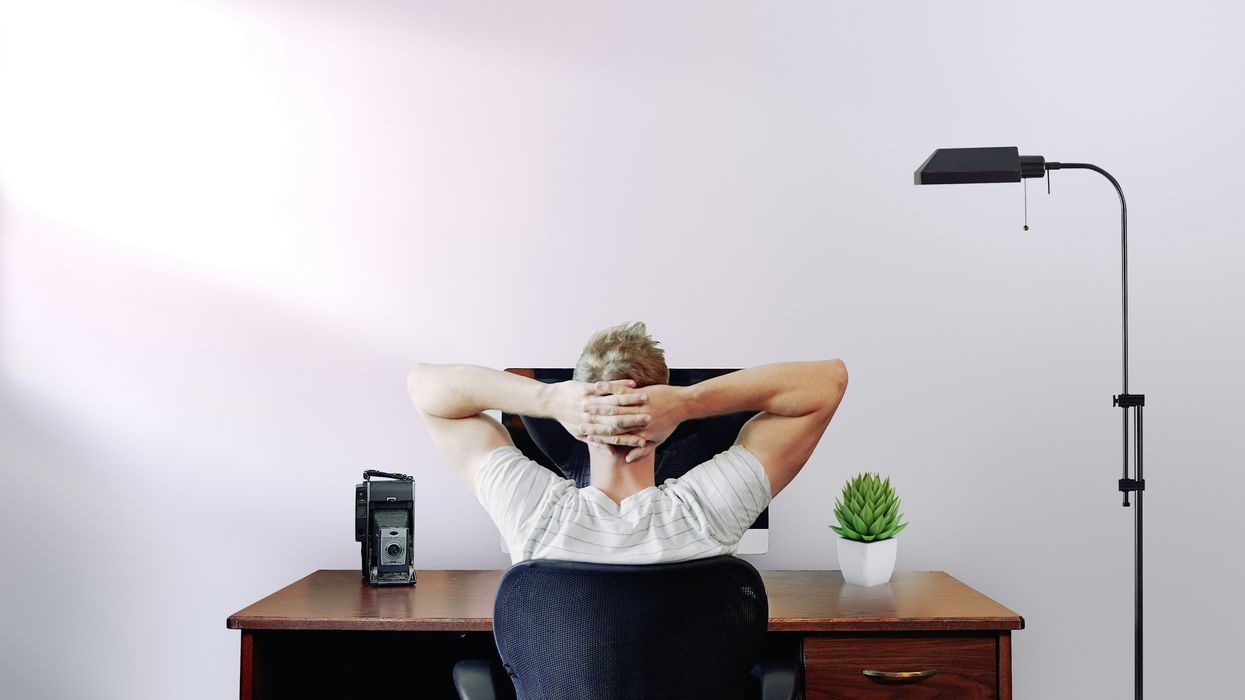
 man in white dress shirt sitting beside woman in black long sleeve shirt Photo by
man in white dress shirt sitting beside woman in black long sleeve shirt Photo by 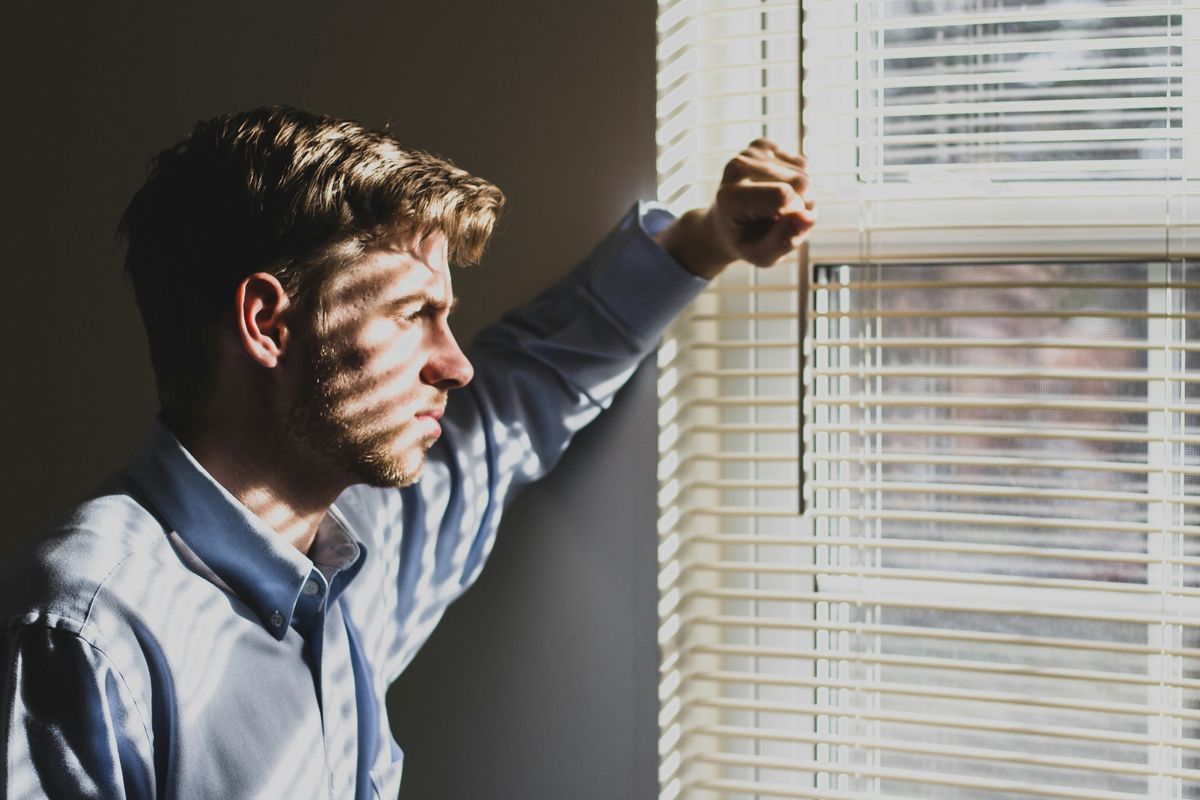 person near clear glass window pane and window blinds low-light photography Photo by
person near clear glass window pane and window blinds low-light photography Photo by 
 Happy Full House GIF
Happy Full House GIF  The Fresh Prince Of Bel Air Reaction GIF
The Fresh Prince Of Bel Air Reaction GIF 
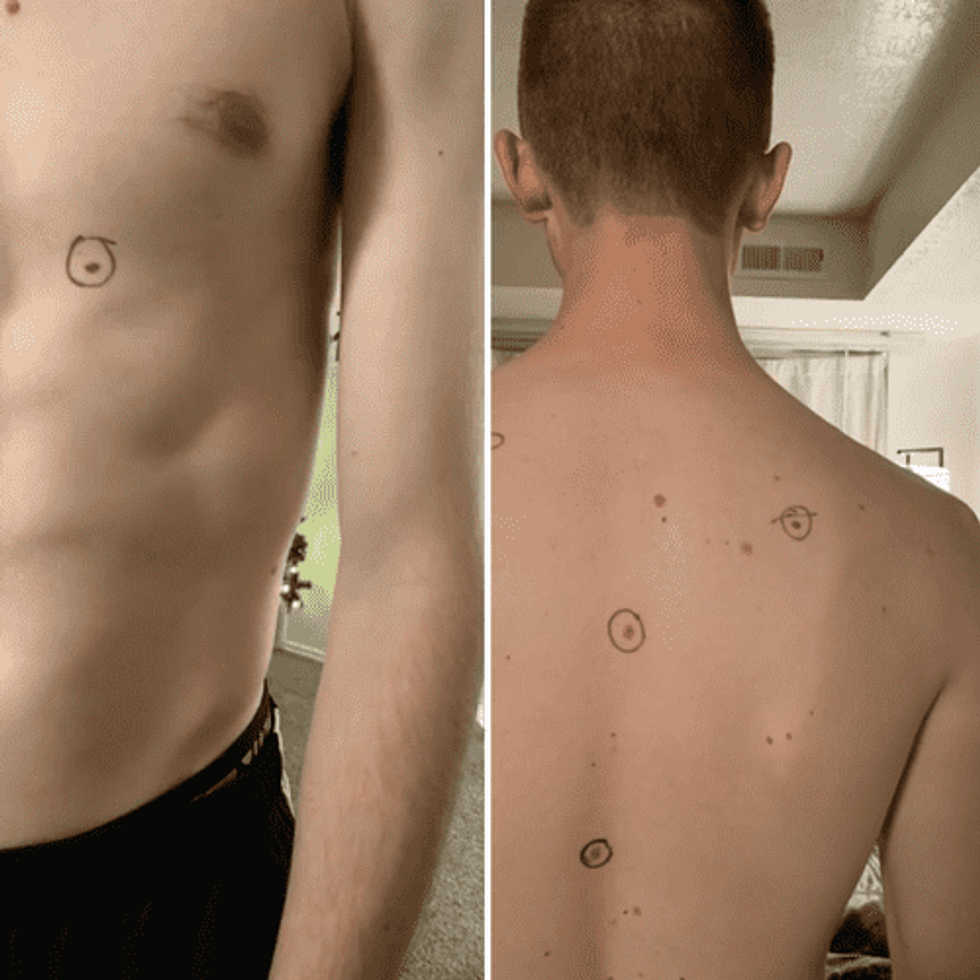 TikTok | @brinleemiles
TikTok | @brinleemiles
 Fathers Day Dance GIF
Fathers Day Dance GIF  Billy Crystal Crying GIF by MOODMAN
Billy Crystal Crying GIF by MOODMAN